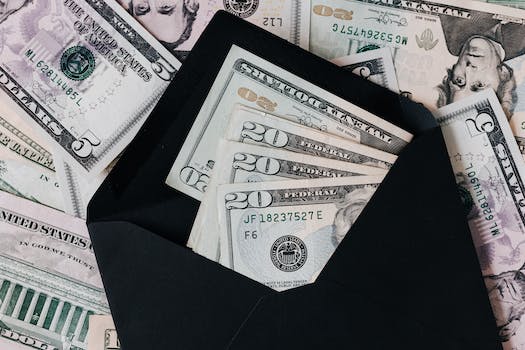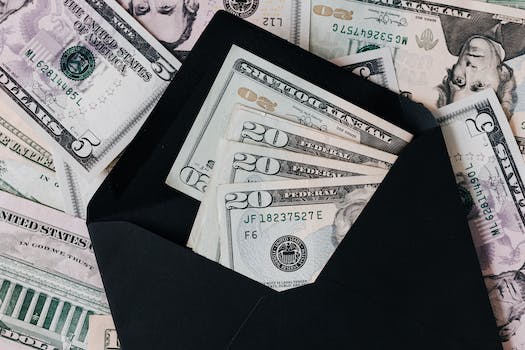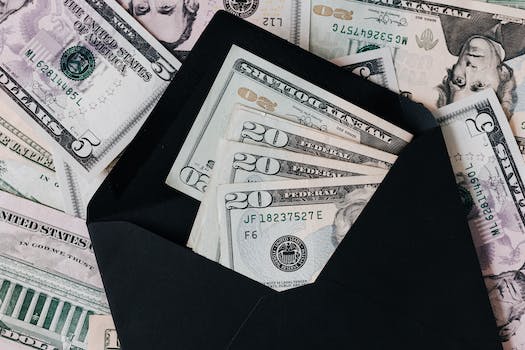How To Budget Yourself To Save Money
“Master the art of budgeting and watch your savings grow.”
Introduction
Introduction: Budgeting is an essential skill that everyone should learn to manage their finances effectively. It helps you keep track of your expenses, prioritize your spending, and save money for future goals. In this article, we will discuss some tips on how to budget yourself to save money.
Creating a Monthly Budget Plan
Budgeting is an essential skill that everyone should learn. It is the process of creating a plan to manage your money effectively. Budgeting helps you to track your expenses, prioritize your spending, and save money. In this article, we will discuss how to budget yourself to save money.
Creating a monthly budget plan is the first step in budgeting. A monthly budget plan is a detailed plan that outlines your income and expenses for the month. To create a monthly budget plan, you need to start by listing all your sources of income. This includes your salary, bonuses, and any other income you receive. Once you have listed your income, you need to list all your expenses. This includes your rent, utilities, groceries, transportation, and any other expenses you have.
Once you have listed all your income and expenses, you need to categorize them. Categorizing your expenses will help you to prioritize your spending. You can categorize your expenses into fixed expenses and variable expenses. Fixed expenses are expenses that do not change from month to month, such as rent and utilities. Variable expenses are expenses that change from month to month, such as groceries and entertainment.
After categorizing your expenses, you need to calculate your total income and total expenses. If your total expenses are more than your total income, you need to make some adjustments. You can either increase your income or reduce your expenses. Reducing your expenses is the easiest way to balance your budget.
To reduce your expenses, you need to identify areas where you can cut back. You can start by cutting back on your variable expenses. For example, you can reduce your entertainment expenses by going to free events or using coupons. You can also reduce your grocery expenses by buying generic brands or shopping at discount stores.
Another way to reduce your expenses is to negotiate your bills. You can negotiate your rent, utilities, and other bills to get a better deal. You can also cancel subscriptions and memberships that you do not use.
Once you have reduced your expenses, you need to allocate your money wisely. You can start by prioritizing your fixed expenses. Your fixed expenses should be paid first, followed by your variable expenses. You should also allocate some money for savings and emergencies.
Saving money is an important part of budgeting. Saving money helps you to achieve your financial goals and prepare for emergencies. To save money, you need to set a savings goal and stick to it. You can start by saving a small amount of money each month and gradually increase it.
You can also automate your savings by setting up a direct deposit into your savings account. This will help you to save money without even thinking about it. You can also use a savings app to track your savings and set reminders to save.
In conclusion, budgeting is an essential skill that everyone should learn. Creating a monthly budget plan is the first step in budgeting. To create a monthly budget plan, you need to list all your income and expenses, categorize them, and calculate your total income and total expenses. If your total expenses are more than your total income, you need to reduce your expenses. You can reduce your expenses by cutting back on your variable expenses, negotiating your bills, and canceling subscriptions and memberships. You should also allocate your money wisely and save money. Saving money helps you to achieve your financial goals and prepare for emergencies.
Cutting Back on Unnecessary Expenses

Budgeting is an essential skill that everyone should learn. It is the process of creating a plan to manage your money effectively. Budgeting helps you to track your expenses, prioritize your spending, and save money. In this article, we will discuss how to budget yourself to save money by cutting back on unnecessary expenses.
The first step in budgeting is to track your expenses. You need to know where your money is going before you can create a plan to manage it. Start by keeping a record of all your expenses for a month. This includes everything from your rent or mortgage payment to your morning coffee. Once you have a clear picture of your spending habits, you can start to identify areas where you can cut back.
One of the easiest ways to save money is to cut back on unnecessary expenses. These are expenses that you can live without or that you can reduce. For example, if you eat out every day, you can save money by packing your lunch instead. If you have a gym membership that you never use, cancel it and find a free way to exercise.
Another way to cut back on unnecessary expenses is to reduce your entertainment budget. This includes things like going to the movies, buying video games, or going out to eat. Instead, look for free or low-cost activities that you can do with friends and family. For example, you can have a picnic in the park, go for a hike, or have a game night at home.
You can also save money by cutting back on your transportation expenses. If you live in a city, consider using public transportation instead of driving. This can save you money on gas, parking, and maintenance. If you do need to drive, try carpooling with coworkers or friends to save on gas.
Another way to cut back on expenses is to reduce your utility bills. This includes things like your electricity, water, and gas bills. You can save money by turning off lights and electronics when you’re not using them, taking shorter showers, and adjusting your thermostat. You can also save money by using energy-efficient appliances and light bulbs.
Finally, you can save money by cutting back on your clothing and personal care expenses. This includes things like buying clothes on sale, using coupons for personal care items, and cutting your own hair. You can also save money by buying generic brands instead of name brands.
In conclusion, budgeting is an essential skill that can help you save money and achieve your financial goals. By tracking your expenses and cutting back on unnecessary expenses, you can create a plan to manage your money effectively. Remember, every little bit counts, so even small changes can add up to big savings over time.
Using Coupons and Discounts to Save Money
Saving money is a goal that many people have, but it can be difficult to achieve without a solid plan in place. One effective way to save money is by using coupons and discounts. By taking advantage of these offers, you can reduce your expenses and keep more money in your pocket. In this article, we will discuss how to budget yourself to save money by using coupons and discounts.
The first step in using coupons and discounts is to find them. There are many sources of coupons and discounts, including newspapers, magazines, online coupon websites, and store loyalty programs. You can also find coupons and discounts by signing up for email newsletters from your favorite stores or brands. Once you have found coupons and discounts that you want to use, it is important to organize them so that you can easily access them when you need them.
One way to organize your coupons and discounts is by using a coupon binder. A coupon binder is a notebook or binder that you can use to store your coupons and discounts. You can organize your coupons and discounts by category, such as food, household items, or clothing. This will make it easier to find the coupons and discounts that you need when you are shopping.
Another way to organize your coupons and discounts is by using a coupon app. There are many coupon apps available for smartphones that allow you to store your coupons and discounts digitally. These apps can also help you find coupons and discounts that are available in your area. Some popular coupon apps include Ibotta, RetailMeNot, and Coupons.com.
Once you have organized your coupons and discounts, it is important to use them strategically. One way to do this is by combining coupons and discounts to maximize your savings. For example, if you have a coupon for $1 off a product and a store is offering a 20% discount on that same product, you can use both offers to save even more money.
Another way to use coupons and discounts strategically is by timing your purchases. Many stores offer sales and discounts at specific times of the year, such as during holiday shopping seasons or at the end of a season. By timing your purchases to coincide with these sales and discounts, you can save even more money.
In addition to using coupons and discounts, there are other ways to save money when shopping. One way is by buying generic or store-brand products instead of name-brand products. Generic and store-brand products are often just as good as name-brand products, but they are usually less expensive.
Another way to save money when shopping is by buying in bulk. Many stores offer discounts when you buy larger quantities of a product. This can be especially useful for items that you use frequently, such as toilet paper or laundry detergent.
In conclusion, using coupons and discounts is a great way to save money. By finding coupons and discounts, organizing them, and using them strategically, you can reduce your expenses and keep more money in your pocket. Remember to also consider other ways to save money when shopping, such as buying generic or store-brand products and buying in bulk. With a little planning and effort, you can budget yourself to save money and achieve your financial goals.
Tracking Your Spending Habits
Budgeting is an essential skill that everyone should learn. It is the process of creating a plan to manage your money effectively. Budgeting helps you to track your spending habits, save money, and achieve your financial goals. In this article, we will discuss how to budget yourself to save money.
The first step in budgeting is to track your spending habits. You need to know where your money is going before you can create a plan to manage it. Start by keeping a record of all your expenses for a month. This includes everything from your rent or mortgage payment to your morning coffee. You can use a notebook, spreadsheet, or budgeting app to track your expenses.
Once you have a record of your expenses, categorize them into different groups such as housing, transportation, food, entertainment, and so on. This will help you to see where you are spending the most money. You may be surprised to find that you are spending more money on certain things than you thought.
After categorizing your expenses, calculate your total monthly income. This includes your salary, any bonuses, and any other sources of income. Once you have your total income, subtract your total expenses from it. This will give you your disposable income, which is the money you have left over after paying all your bills.
Now that you know where your money is going, it’s time to create a budget. Start by setting financial goals for yourself. Do you want to save for a down payment on a house, pay off debt, or go on a vacation? Whatever your goals are, make sure they are specific, measurable, achievable, relevant, and time-bound.
Next, allocate your disposable income to your different expense categories. Start with your fixed expenses such as rent or mortgage payments, car payments, and insurance. Then allocate money to your variable expenses such as food, entertainment, and clothing. Make sure to leave some money for unexpected expenses such as car repairs or medical bills.
It’s important to be realistic when creating your budget. Don’t allocate more money than you have or you will end up in debt. If you find that you don’t have enough money to cover all your expenses, look for ways to cut back. This could mean eating out less, canceling subscriptions, or finding a cheaper place to live.
Once you have created your budget, it’s important to stick to it. This means tracking your expenses and making adjustments as needed. If you find that you are overspending in one category, look for ways to cut back in another category. For example, if you are spending too much money on entertainment, try cooking at home instead of eating out.
In conclusion, budgeting is an essential skill that everyone should learn. By tracking your spending habits and creating a budget, you can save money and achieve your financial goals. Remember to be realistic when creating your budget and to stick to it. With a little discipline and determination, you can take control of your finances and achieve financial freedom.
Setting Financial Goals and Sticking to Them
Budgeting is an essential skill that everyone should learn. It is the process of creating a plan to manage your money effectively. Budgeting helps you to track your expenses, prioritize your spending, and save money. However, creating a budget is not enough. You need to set financial goals and stick to them to achieve financial stability. In this article, we will discuss how to budget yourself to save money by setting financial goals and sticking to them.
The first step in budgeting is to set financial goals. Financial goals are specific, measurable, achievable, relevant, and time-bound objectives that you want to achieve with your money. Financial goals can be short-term, medium-term, or long-term. Short-term goals are those that you want to achieve within a year, medium-term goals are those that you want to achieve within 2-5 years, and long-term goals are those that you want to achieve in more than five years.
To set financial goals, you need to identify what you want to achieve with your money. Do you want to pay off debt, save for a down payment on a house, or invest for retirement? Once you have identified your financial goals, you need to prioritize them based on their importance and urgency. You can use the SMART criteria to set your financial goals. SMART stands for Specific, Measurable, Achievable, Relevant, and Time-bound.
The next step is to create a budget that aligns with your financial goals. A budget is a plan that outlines your income and expenses. To create a budget, you need to track your income and expenses for a month. You can use a budgeting app or a spreadsheet to track your income and expenses. Once you have tracked your income and expenses, you need to categorize your expenses into fixed and variable expenses.
Fixed expenses are those that do not change from month to month, such as rent, mortgage, car payment, and insurance. Variable expenses are those that change from month to month, such as groceries, entertainment, and clothing. You need to prioritize your expenses based on their importance and cut back on unnecessary expenses to save money.
To stick to your budget, you need to develop good financial habits. Good financial habits include tracking your expenses, avoiding impulse purchases, and saving money regularly. You can automate your savings by setting up a direct deposit from your paycheck to your savings account. You can also use a cash envelope system to control your spending.
In conclusion, budgeting is an essential skill that everyone should learn. To budget yourself to save money, you need to set financial goals and stick to them. Financial goals are specific, measurable, achievable, relevant, and time-bound objectives that you want to achieve with your money. You need to prioritize your financial goals and create a budget that aligns with your goals. You also need to develop good financial habits to stick to your budget and achieve financial stability. Remember, budgeting is not a one-time event. You need to review and adjust your budget regularly to ensure that you are on track to achieve your financial goals.
Conclusion
To budget yourself to save money, you should start by tracking your expenses, creating a budget plan, setting financial goals, and finding ways to cut back on unnecessary expenses. It’s important to stick to your budget plan and regularly review and adjust it as needed. By following these steps, you can successfully manage your finances and save money for the future.







